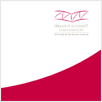With the intensification of datafication/digitization of governance comes a growing relevance of predictive governance instruments. Such instruments operate through ongoing, fine-grained data analysis in order to anticipate future scenarios and to support proactive governmental decision-making.
At the professorship, we research predictive governance mainly in the context of the following projects and activities:
Research Project „The productive effects of predictive governance in education: the example of Early Warning Systems (EWS)“
The project is embedded in the Heisenberg funding and focuses on early warning systems used in a growing number of schools in order to identify students who are at risk for low performance, problematic behavior or drop-out. In the context of the project, we particularly research the following questions:
How do early warning systems transform the temporality, that is, the temporal framing and rhythms of schooling? Which effects do these transformations evoke?
How do teachers and school leaders embed early warning systems within their (professional) practices; how do they relate the early warning data to their own (professional) judgement?
In how far does the “flagging” of students (of being at risk) affect the talking about/interacting with these students? How do the systems change the social relations of schools? How does it affect social inequality?
The project includes collaboration with Dr. Steven Lewis from Australian Catholic University as well as Prof. Mathias Decuypere from Zurich University of Teacher Education.
“Government Foresight in Germany. Cultural-Sociological Studies on Politics of the Future in 21st-Century Western Societies” (Habilitation project of Dr. Manuel Reinhard)
What role does “government foresight” (i.e., strategic foresight by government authorities such as scenario planning) play in the establishment of “politics of the future” – the co-constitution of attempts to imagine (“imaginary futures”), control (“anticipatory governance”), and shape (“future-making practices”) possible futures – in specific fields of political practice in different policy sectors of the Federal Republic of Germany? Dr. Manuel Reinhard’s habilitation project consists of three ethnographic field studies in specialised foresight units within federal authorities for financial, climate, and defence policy (Bundesanstalt für Finanzdienstleistungsaufsicht [Federal Financial Supervisory Authority], Umweltbundesamt [Federal Environment Agency], Planungsamt der Bundeswehr [Bundeswehr Office for Defence Planning])
Furthermore, between 2020 and 2022, we co-organized the international event series „PreGov – Predictive Governance“ together with colleagues from HSU. The program of the last edition of the event series in 2022 can be found here:
Letzte Änderung: 5. February 2025
